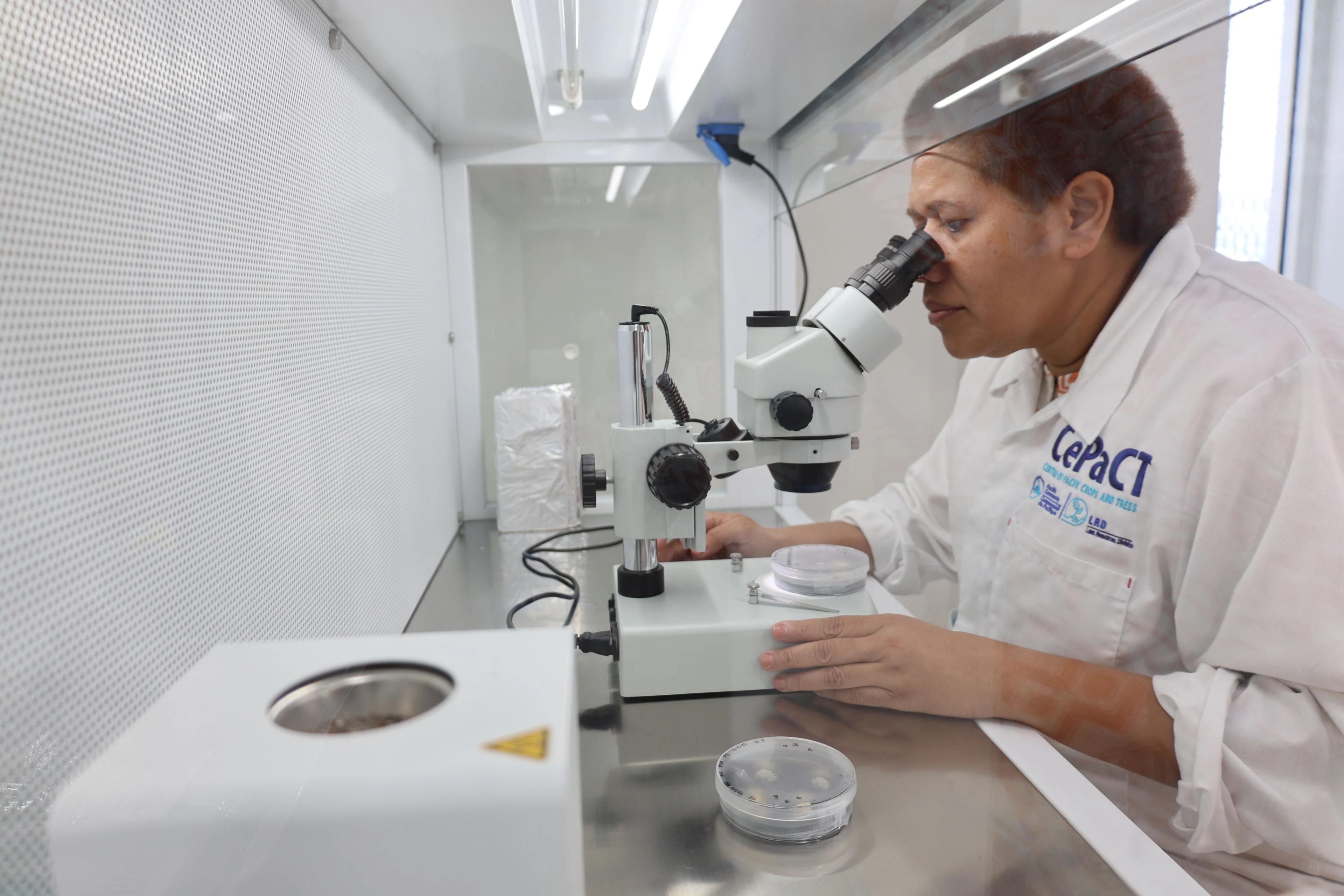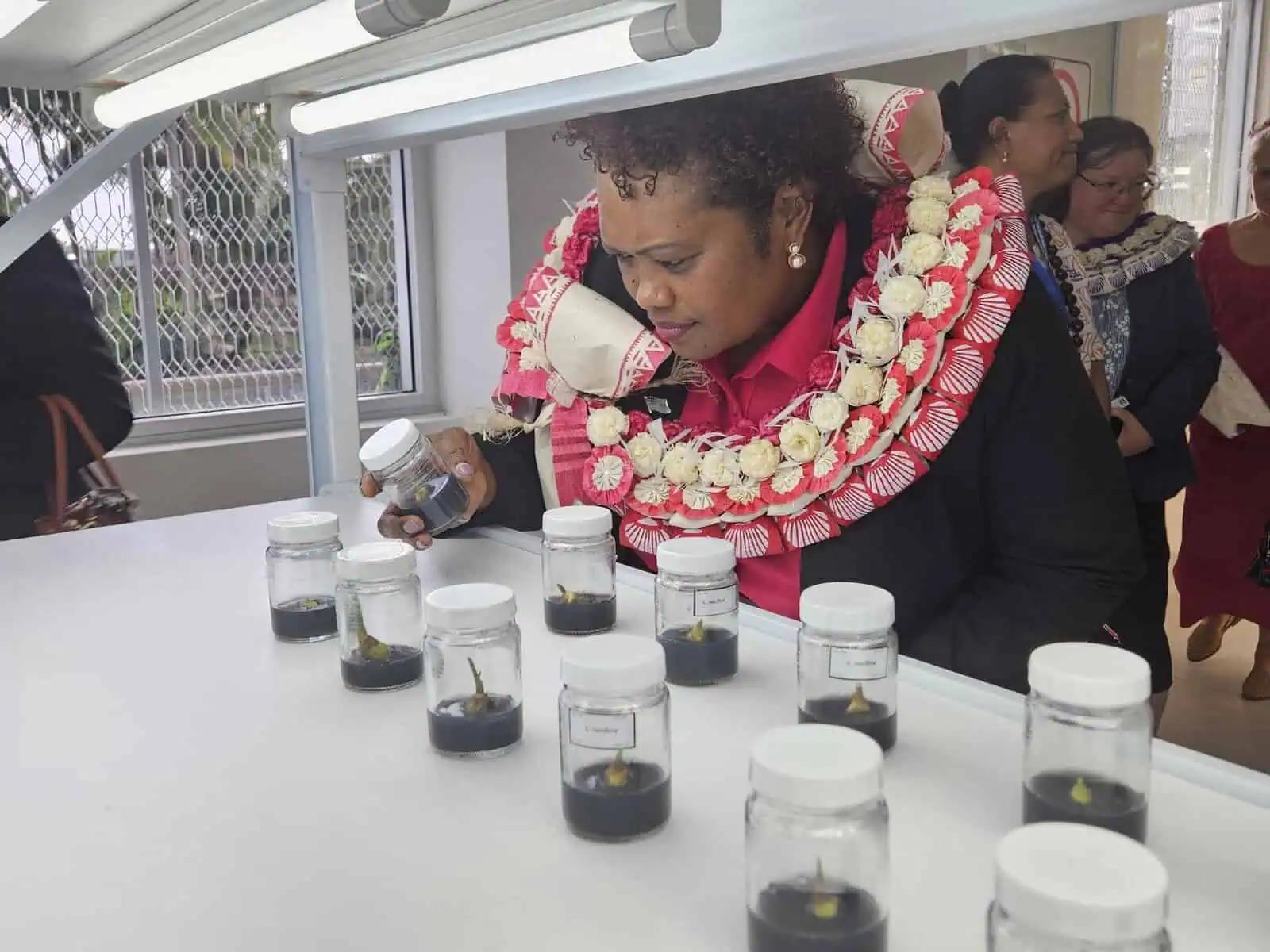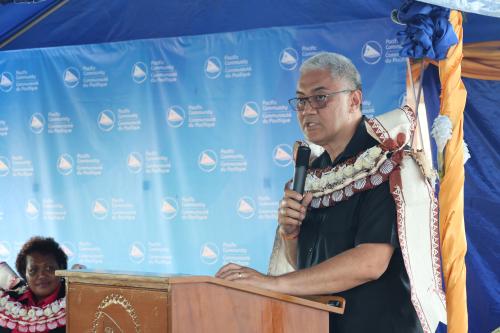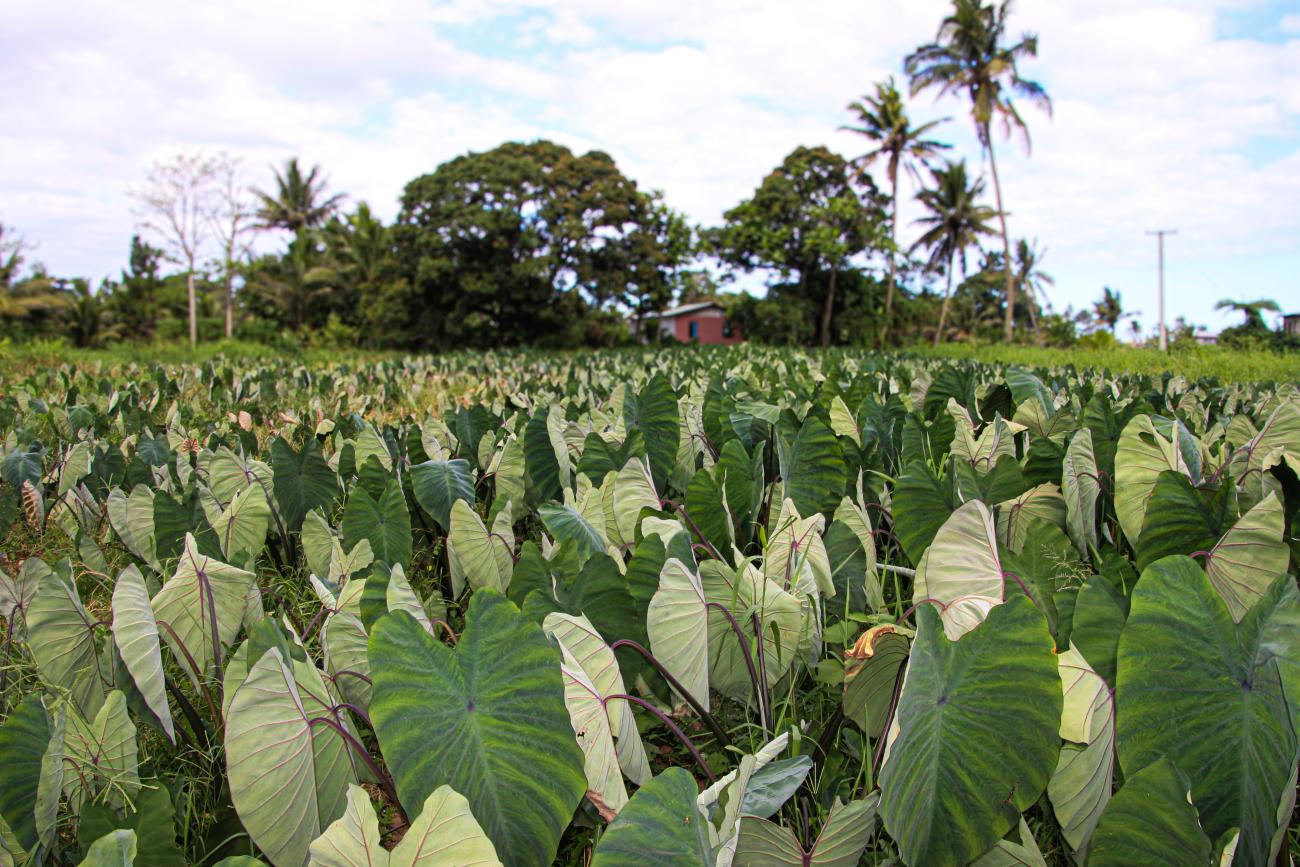

A scientist at Fiji’s new Cryolab prepares plant samples for freezing, part of efforts to protect Pacific crops for the future.
Photo/Pacific Community (SPC)
Pacific Islands first cryopreservation lab opens in Fiji to protect crops for the future
The new high-tech laboratory will freeze and protect taro, yams, coconuts, and kava.




UK royal arrest sends shockwaves as Jeffrey Epstein files reference Pacific islands - reports




UK royal arrest sends shockwaves as Jeffrey Epstein files reference Pacific islands - reports
The Pacific now has a brand-new tool to protect their crops for the future.
This comes after the Pacific Community (SPC) opened the region’s first cryopreservation laboratory, at its Centre for Pacific Crops and Trees (CePaCT) in Fiji, last week.
Many Pacific Islanders depend on crops like taro, yams, bananas, breadfruit, and cassava - not just for food, but for culture and tradition.
According to the CePaCT, other factors are also putting these crops at risk: climate change, pests, disease, and globalisation.
It says the new cryolab, in Narere, Suva, will help protect the plants by storing samples at ultra-low temperatures. This means the plants’ genes can be kept safe for decades, even centuries.
The SPC says the lab will nearly triple its capacity, from around 12,000 to about 30,000 samples.

Fiji’s Minister for Fisheries and Forestry, Alitia Bainivalu, at the launch. Photo/SPC
Fiji’s Minister for Fisheries and Forestry, Alitia Bainivalu, says, “For many years, CePaCT has served as the regional custodian of our crop diversity, safeguarding the plants that feed us and shape our traditions.
"This CryoLab represents the protection of those choices, our insurance for the future.”
Paula Vivili, the SPC's Deputy Director-General, says, “The CryoLab secures our most important crops permanently, reducing costs over time, and enabling faster recovery when disasters strike.

Paula Vivili, the SPC's Deputy Director-General, says the CryoLab secures the region's most important crops permanently, reduces costs over time, and enables faster recovery when disasters strike. Photo/SPC
"It also strengthens compliance with international standards and safeguards high-value crops with no other long-term conservation options.”
Meanwhile, farmer networks are already feeling the change. At a recent meeting in Fiji, Pitakia Tikai, a farmer from the Solomon Islands and Pacific Island Farmers Organisation Network (PIFON) member, says, “Our crops tell stories of knowledge, of shared farms and seeds passed from one generation to the next. With better tools like this lab, we can keep those stories alive.”
The SPC says this also means:
Stronger crop resilience, adding that if a storm, disease or drought hits (as they often do), Pacific countries will have a better way to rebuild vital plants.
Cultural preservation: The crops preserved are more than food - they hold identity, tradition, and community.
Food security for all: By safeguarding rare or vulnerable plants, island nations can maintain more of their food supplies and reduce reliance on imported crops.
Regional backup: The facility won’t just serve Fiji. It will act as a regional “vault” for plant collections from many Pacific countries.

Many Pacific Islanders depend on crops like taro, not just for food, but for culture and tradition. Photo/SPC
The SPC says the focus is on Pacific islanders taking control of their future, not just relying on external help.
"This lab signals a shift: the region is moving from simply surviving climate threats - to building systems that give them more choice, more resilience, and more ownership of what they eat and how they live," the regional organisation stated.
"When we think of Pacific food and culture, we often think of the present: gardens, meals, community.
"This new lab is about the future, about keeping those gardens and meals alive for generations to come.
"With this step, Pacific islanders are not just protecting crops; they are protecting identity, resilience, and choice."